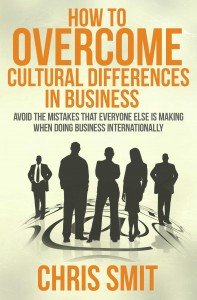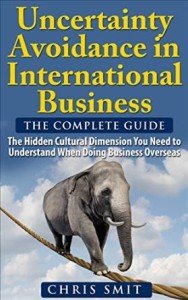Is England Part of Europe; Or is Britain Part of Europe?
That one and the same question is a good question to ask. So, let’s evaluate this.
A Historic Perspective to Start With
To answer the question “Is England Part of Europe” or “is Britain part of Europe” we need to go back a long time. A really long time… Well, 6,500 years ago it certainly was, thanks to a land bridge that linked it to the European Continent and allowed people to migrate along the Atlantic coast from the Iberian peninsula. This is reflected in recent research which indicates that, far from being an essentially Anglo-Saxon race, the English have a much stronger genetic relationship with the Basques!
So, indeed, that long ago, the question “Is England Part of Europe” or “is Britain part of Europe” would have to be answered with a “Yes…” But let’s continue.
The English are convinced that they are viscerally different from their Continental neighbors (NB: so far we have only talked about the English, while the terms ‘Britain’ and ‘British’ also include the Scots, the Welsh, and the Ulstermen, the people of Northern Ireland. This distinction is an important one because the others tend to indulge less in the sort of silliness that the English often, knowingly, practice).
They all owe their ingrained prejudices about the Continent to a variety of experiences that date back to at least the year 1066 (the only historical date the average Brit remembers). This was when the Normans invaded the island and introduced a class system: the Normans became the land-owning nobles and the Brits stayed the plebs.
The conflict between the Continental system of Roman Law and the grassroots British approach to Common Law has a lot to do with these prejudices. Within 50 years of the Norman invasion King Stephen, grandson of William the Conqueror, had his experts formalize the island’s laws on the strict understanding that they should exclude any influence from the more complex Roman Law.
Mistrust
The tendency of the British to mistrust Roman influence in both the legal and religious spheres – a mistrust now directed at Brussels as the home of the European institutions – is ingrained in British thinking. It has been reinforced by other major events such as, on the English side, the secession from the Church of Rome engineered by Henry VIII, and, on the Continental side, by the radical rationalization of public life under Napoleon.
Napoleon’s initiatives in efficiently organizing a messy reality, by insisting for example that all traffic should keep to the right of the road – except Britain, even today – prompted the British historian Thomas Carlyle (who happened to be Scottish) to comment in his book The French Revolution 150 years ago: “Of the continental nuisance called ‘Bureaucracy’ I can see no risk or possibility in England. Democracy is hot enough here, fierce enough, it is perennial, universal, clearly invincible…”.
Bureaucracy
For the British, bureaucracy is a very dirty word, even if there is more of it at home – and often worse – than on the Continent. It helps explain one of the great British shibboleths: the sustained belief in the value of self-regulation, when time and again such attempts end in disaster: the Lloyds insurance exchange, the London stock exchange, and now the issue of regulation to curb media excesses. Avoid government intervention at all costs!
Myths
The British have always survived on myths. The most pernicious of them find expression internationally in a sense of feeling different from their European neighbors (partly justified!) and domestically in awareness of class distinctions. Other key features include a love of tradition, a distaste for regulation, and the cult of the amateur…
Jane Kramer, perhaps the most perceptive transatlantic observer of the Old World, says this in her book, Europeans: “The English produced the most class-ridden society in Europe, and in some ways, the most aggressively self-deluded – and for centuries managed to hold it together by pretending that responsible social cooperation was a natural expression of Englishness, rather than the protective accommodation of citizens to one another in a free country.”
Maintaining British myths has been one way of compensating for the poor government. Those in power have often resorted to a blend of self-indulgence and schoolboy arrogance that prompted one British political commentator to describe them as “a distant, detested and self-interested class.”
Britain’s Referendum in 2017
This brings us to the 2017 referendum proposed by Mr. Cameron – a stratagem worthy of the British political tradition of double-talk. If that referendum were held today, the British public at large would certainly vote for withdrawal from the European Union, while the business community would not.
The Great British Public is not only uncomfortable with the Continental way of doing things differently, but it is also particularly ill-informed on the realities. The Europe that most Brits know is cut-price hotels and holiday villages on the Costa Blanca or weekend ‘blinders’ for the lads in Prague or Budapest.
So they are not likely to have much to help them arrive at a balanced judgment at the 2017 referendum… If it ever happens!
2017 Update
Well, as you know the referendum indeed did happen on June 23rd, 2016. Even a year earlier than I expected. And we all know the outcome now. So, is England part of Europe, and/or is Britain part of Europe?
Well, we’re not done with this yet. Enough people realize that what they voted for was not what the consequences were; many of the Leave voters voted against the government of David Cameron. Many people (at the time of this update there were over 4 million) people have asked for a second referendum.
And Europe seems to be done with Britain as well. “You said No, so leave” seems to be the overall tenure. At least in Brussels.
Maybe the question should be “Will England be Part of Europe” instead of “Is England a Part of Europe“. Or can it become more complicated? If we ask “is Britain part of Europe” it involves the question if the Scots will remain a part of Britain…
To be continued.
image by marc falardeau
(the main keyword for this article is, Is England Part of Europe and is Britain part of Europe. Make sure to browse around further for more reading)
Liked what you read? Click here to read what the impact of Brexit is on UK business
Read an article about the Euregio here (Belgium, the Netherlands, and Germany).
Another article by Richard Hill can be found here.
Get a Taste of How Chris Presents, Watch his TEDx Talk
 Call Direct: +32476524957
Call Direct: +32476524957
 European Office (Paris) Whatsapp: +32476524957
European Office (Paris) Whatsapp: +32476524957
The Americas (USA; Atlanta, GA; también en Español): +1 678 301 8369
Book Chris Smit as a Speaker
If you're looking for an Engaging, Exciting, and Interactive speaker on the subject of Intercultural Management & Awareness you came to the right place.
Chris has spoken at hundreds of events and to thousands of people on the subject of Cultural Diversity & Cultural Competence.
This is What Others Say About Chris:
- “Very Interactive and Engaging”
- “In little time he knew how to get the audience inspired and connected to his story”
- “His ability to make large groups of participants quickly and adequately aware of the huge impact of cultural differences is excellent”
- “Chris is a dedicated and inspirational professional”
In addition, his presentations can cover specific topics cultural topics, or generally on Cultural differences.
Presentations can vary anywhere from 20 minutes to 2 hours and are given worldwide.
Book Chris now by simply sending an email. Click here to do so.
Read more about what Chris can do for you.
- Percentage of People Rating a Presentation as Excellent 86%
- Rating the Presentation as Practical 89%
- Applicability of Chris' presentation 90%
About Peter van der Lende

Peter has joined forces with Culture Matters.
Because he has years and years of international business development experience joining forces therefore only seemed logical.
Being born and raised in the Netherlands, he has lived in more than 9 countries of which most were in Latin America.
He currently lives in Atlanta, Georgia (USA) with his family.
You can find out more at https://expand360.com/
Or find out what Peter can do for you here.
- Is England Part of Europe and Is Britain Part of Europe? - 30 June 2016
- The German Culture and German Humor - 6 January 2015
- Turkish Culture; Saint Nicholas and the Garden Gnomes - 5 December 2013



 Call Direct: +32476524957
Call Direct: +32476524957 European Office (Paris) Whatsapp: +32476524957
European Office (Paris) Whatsapp: +32476524957
Whilst I can see a lot of “truth” in this article, as a Brit I do feel a little defensive about it labelling most of us as only associating Europe with “cut-price hotels and holiday villages on the Costa Blanca or weekend ‘blinders’ for the lads in Prague or Budapest.”
I also am surprised to see an article about Britain without mentioning the longevity, strength and influence of the British Empire or our pivotal role in the Industrial Revolution. By nature I feel “European” but the EU is a complex world. The British are largely a “compliant” people – if there are rules, then most people want to comply. On my travels through many EU countries I often wonder if they really are subject to all the same EU Regulations that we are. I think many EU countries turn a blind eye to many of the regulations. If our government was like that then our citizens would perhaps have a less negative view.
Thanks Neville.
I like the way you call the Brits a “compient” people. It captures it well!
Hi! I love England, I love English, I’m fascinated by the “British approach”. But I also want (and to love) to consider England (or UK, or Britain…) as part of Europe (I mean UE) and I can’t imagine Europe without UK. Yes, even fortunately, Britons are quite different. Luckily! This is our great richness: diversity! Together we can be really strong and we can better facing challenges that the future is preparing. Yes, I agree with Britons: UE, as of today, has to change, in order to become something better, in order to become a dream (and a reality). We can change-it together, we can be stronger together. Because I can imagine how hard could be for UK (around 60millions people) to face billions of Indians, or Chinese… UK could also be a bridge between Europe and the other side of the Ocean, but being European, being British!
Thank you Alfredo for your comment.
Let’s see what happens when there is a referendum!
I agree with everything you say, Alfredo, although the British had to deal with ‘billions of Indians’ for nearly a century and apparently never got over the experience. But first we (I’m British) have to rid ourselves of our myths and our complexes.
Until the English manage to do some serious geological wizardry, they will be have to be content to be common Europeans just like the rest of us, regardless of political affiliations.
What a load of prejudice from Mr. Hill towards the English, it’s no wonder people cannot live in peace across borders when this verbal diarrhoea and historic prejudice continues to flow from the mouths of those who live on these isles. Let me inform you for a start, that if you read up on Wikipedia you will see that the British Isles, including Ireland, and many other islands, are not part of Europe.
The Continent (meaning mainland) is made up of continuous mainland Europe, excluding the surrounding islands. So if we are not part of Europe, how can we leave something we are not part of?
Initially we joined what was then called the Common Market, to trade, not in order to create a federal state of Europe.
Many people from these isles lost their lives fighting on Europe soil for European lives in past world wars, including my family, something that seems to have been forgotten in all this vitriol.
The Welsh, the Scots and the Irish never stop complaining about the English, they have used them as a verbal punch bag for years. We all came from mainland Europe when the seas were lower, get over it. The Celts came from middle Europe, the Irish are a mix of Scandanavian invaders and Spanish Armada survivors, the Highland Scots think they are Vikings and dislike the lowland Scots. And everybody loves to hate the English. What would those on this group of islands do without the English to hate? They might start hating each other!
If you read history, you will know that the The English Class system comes from the Normans, who 200 years before invading England, had caused chaos in France, until Charles the Simple of France gave them land to keep them quiet, Normandy, where eventually they turned their attentions on to England, and to Dublin. These troublesome thugs built Dublin, not the Irish!
The Normans were a bunch of pirates and murderers from Scandanavia, who had raided, raped and pillaged all along the Seine for years. If we’re going to point the finger here, they were men. Who weren’t happy unless they were picking a fight, and stealing off honest people.
These people interbred with the people in the Duchies of what we now know as France. Their greed then turning across the Channel to England. These are the people who formed our present Royal Family and aristocracy. William the Conquerer was known as William the Bastard, his father had an mistress who was a tanners daughter. So a good start for a long lived dynasty to have an illegitamet King as head of the family tree, just one of many.
Those you accuse of being English were Norman invaders, and the English fought them and died for their freedom at the time from 1066. They had land taken from them to provide hunting grounds and property for Wiliam’s Barons. This was and still is a conquered country.
The class system comes from the French side of Williams family, through marriage, where knights and nobles thought themselves far superior to others, they still do! Look at those Barons who still own vast areas of land in England.
David Cameron comes from the Stuart and German Royal household, via illegitimacy,
Samantha Cameron is from the Bastard side of Charles II, who had no legitimate heirs,
Boris Johnson comes from the illegitimate German Royal line, via a favourite mistress,
they all come from Bastard lines so few true thoroughbreds in British royals and aristocracy.
They were pirates, murderers, rapists and thieves, as history and Shakespeare informs us, who came from across the water, and used the taxpayers of England to fund their wars with France.
So, if you want to continue your vitriol Mr. Hill, aim it across the water, because the English are fed up with your whinging!
And from my experience of living in Bournemouth, the ones drinking and partying themselves to oblivion all seem to come here from Manchester and Liverpool, the largest Irish cities in England, from Irish families working on the Manchester Ship Canal, who settled here. Do you class them all as English.
Put up or shut up Mr. Hill, we have heard enough!
What would you expect from a (….), probably worships Merkel as well.
What a excellent reply and so informative, thank you for sharing your knowledge.
I have to put down the negative comments about the English, to plain envy:-)
Thanks for the compliment!
Kind regards,
Chris
I hope my comments are not awaiting too much moderation!
Mr. Hill (Irish name? Irish origin?) and similar others, have done their fair share of English bashing. It is now time they took it on the chin(s)
Even Mr. Eden had to admit to feeling defensive following your comments.
Mr. Hill, you are rude. Admit it, and apologise for your generalisation of the English people.
Anon
My wife is Dutch. She says that the UK is part of Europe.
I am London born, Scots reared and schooled. I say the UK is not. It’s Britain.
We are now naturalised Australian.
But oh! The controversy we have on this point.
Yes, the UK is part of the European Continent, but, Continentals? NO!
So basically the only reason we are European is because we built a bridge connecting us some 6,500 years ago to join for trade and migration.